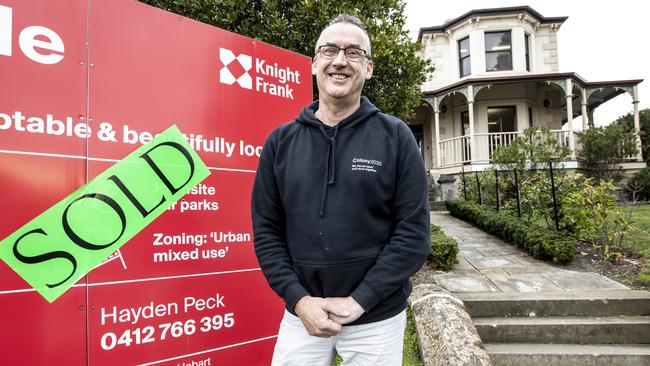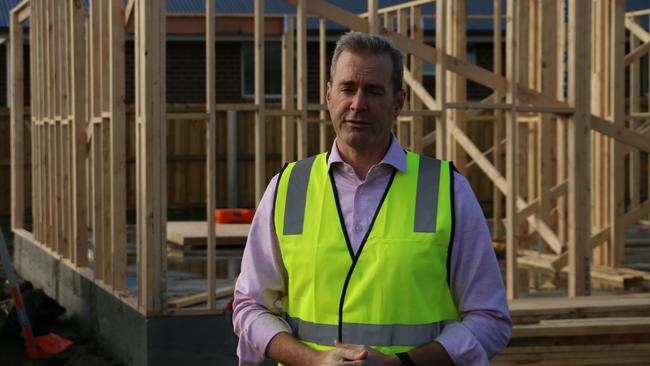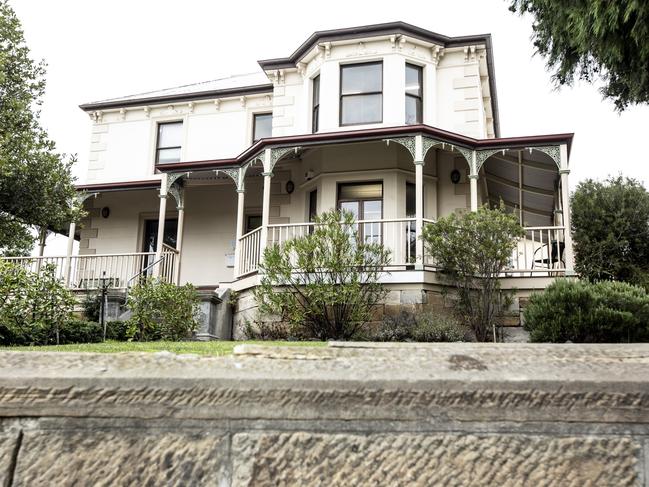More investment needed to boost availability or youth housing, charity says
More money is needed for social and affordable housing for young people struggling to find a place to live in an overheated property market, a charity boss says.
Tasmania
Don't miss out on the headlines from Tasmania. Followed categories will be added to My News.
- Housing crisis: More than 4000 Tasmanians on the waitlist for social housing
- MP calls for urgent action for boost crisis housing options
THE state government must invest more money to social and affordable housing for young people in this month’s budget, a local charity boss says.
Ensuring young people had secure housing meant they could complete their education and training, secure jobs and enter the private market, Colony 47 CEO Danny Sutton said.
At the moment, too many young people who could be working were instead struggling to find a place to live in an overheated property market.
Mr Sutton said that of the 500 young Tasmanians in Colony 47’s vocational training and employment program Transition to Work, about 80 were either couch surfing, homeless or at risk of homelessness.
“There are three key issues that we keep running into where young people have barriers to finishing education, accessing vocational training and employment,” he said.
“They tend to be support around mental health issues, access to transport, particularly if they’re in remote areas away from the vocational training and employment, and also housing.
“Of all the groups in the community, this is a pretty disadvantaged group in terms of access to housing.
“We know 20 per cent of the social housing waitlist is comprised of young Tasmanians under 25. This isn’t a small group, it is quite significant.”

Mr Sutton said there were solutions worth pursuing, such as the purchase of under-used properties as supported share houses, prefabricated modular builds of group housing, and rental subsidies
“If they get this first step well-supported then their transition isn’t into social housing in the long term,” he said.
“They can get a trade, get employment, and then step into the market themselves over time.”
State Development, Housing and Construction Minister Michael Ferguson said the government had built 127 new homes in the June quarter — and would add $280m to the $615m already committed,
“There is more work to be done as I want every Tasmanian to have a safe roof over their heads,” he said.
“We are seeing continued growth in demand for social housing, and we are working to grow our capability to meet that demand with an unprecedented investment to build housing supply.”

Mr Sutton said even the government had acknowledged that traditional social housing was not always suitable for young people.
He said he was hoping to see money in the state budget for additional pilot programs that could be rapidly be scaled up if they were shown to be successful.
“At the moment with the borders closed, industry demand for employments increasing and the market’s getting tighter. It makes sense that we invest in young people now, because they’re the immediate opportunity to get employees into the market.”
This week is national homelessness week. The state budget will be handed down on August 26.
Youths big winners from $3m building sale
SKY-high house sales usually spell disaster for those trying to get into the market, but this building’s sale for nearly $1 million above the expected price spells good news for youths struggling to find housing.
Colony 47 CEO Danny Sutton said the North Hobart building where the housing support organisation operated had sold for $3 million.
“During Covid-19 we went to a very flexible model with staffing,” he said.
“We had a number working from home and also people working around our different sites.
“When we came back from Covid-19 we realised we could relocate staff out to other sites which would allow us to sell the building and invest back into our programs.”
The market valuation indicated the Elizabeth St site would fetch between $2 million and $2.3 million, but the sale was significantly higher.
“The board and the management team were pretty delighted, we’re now working on the next steps and thinking about where the areas of need are for young people,” Mr Sutton said.

He said key areas of focus for Colony 47 after the pandemic were accessing vocational training and employment, improving mental health, and accessing housing and transport.
“Having the resources allows us to not only generate ideas but put some skin in the game to partner with others to get these ideas working and get these young people employed and trained and moving on,” Mr Sutton said.



